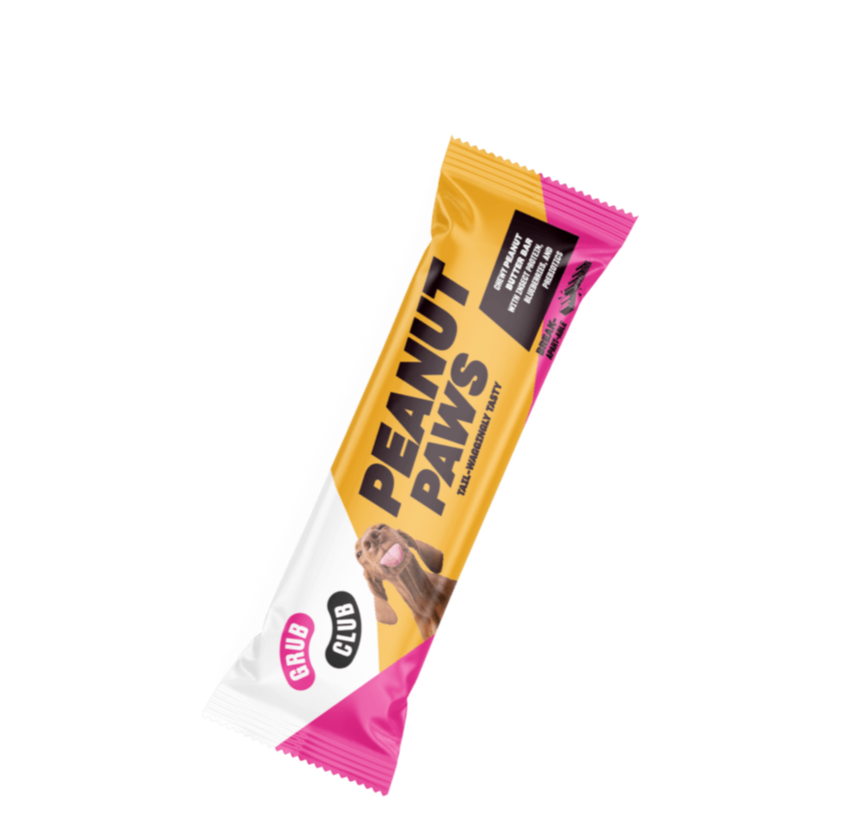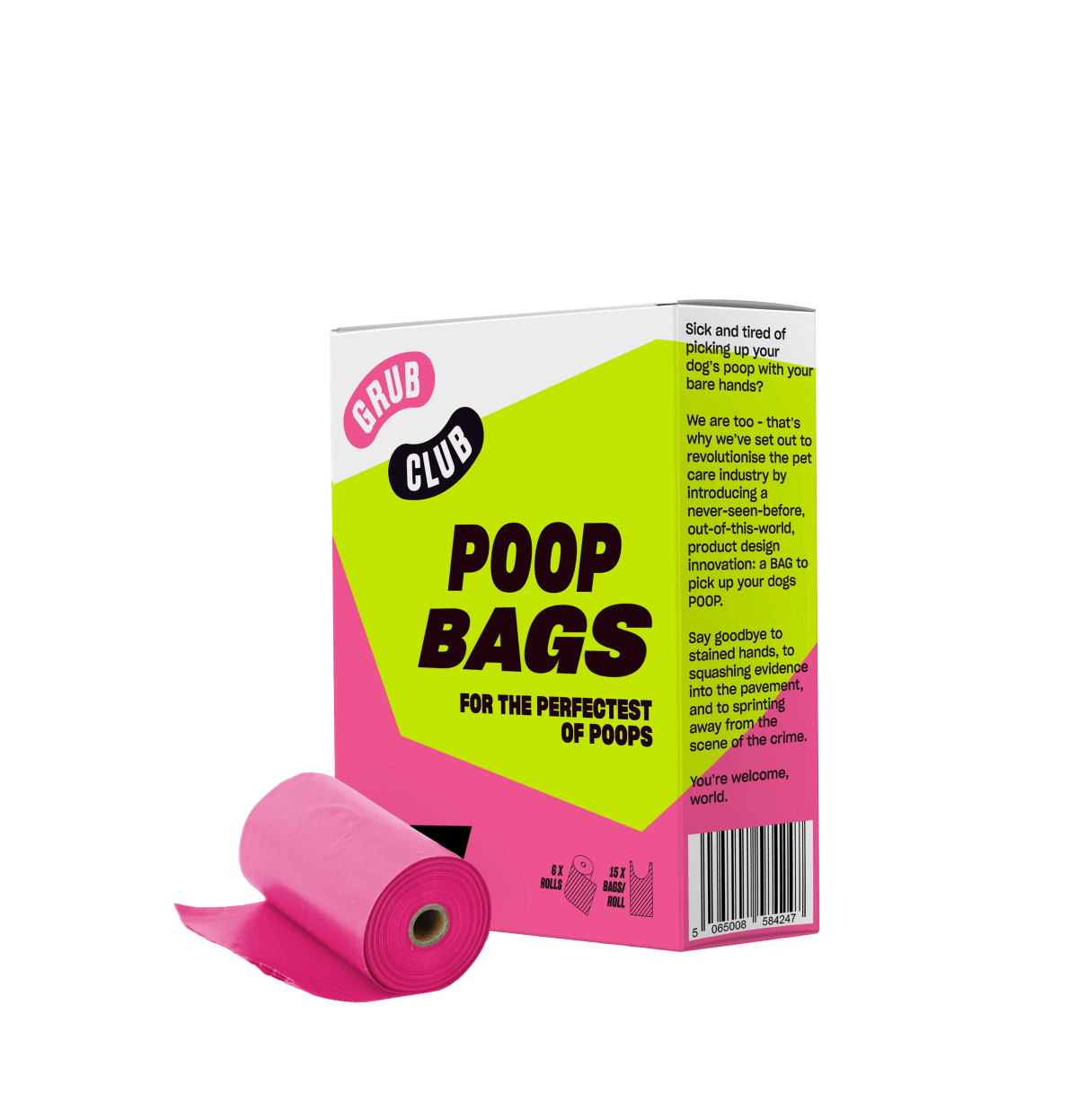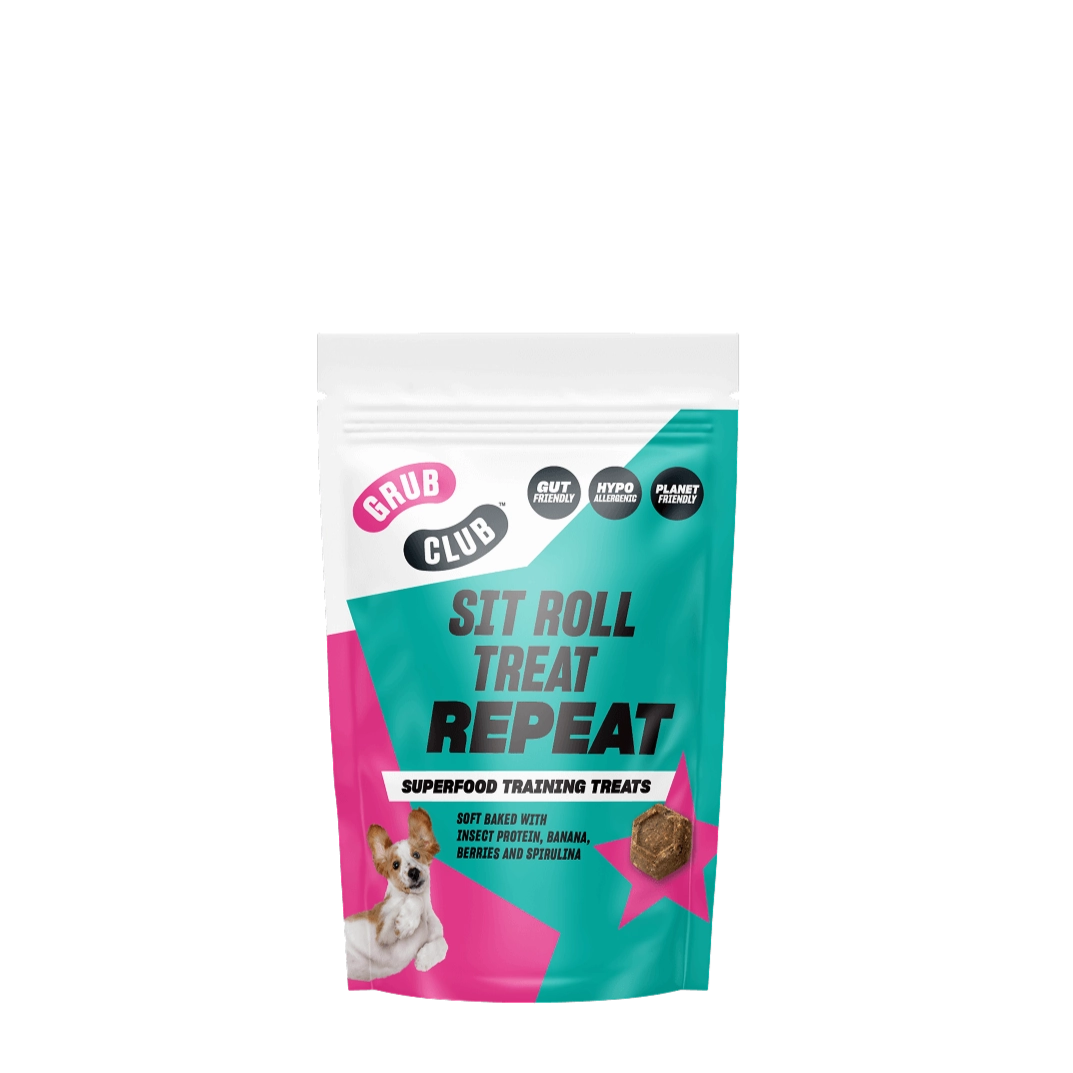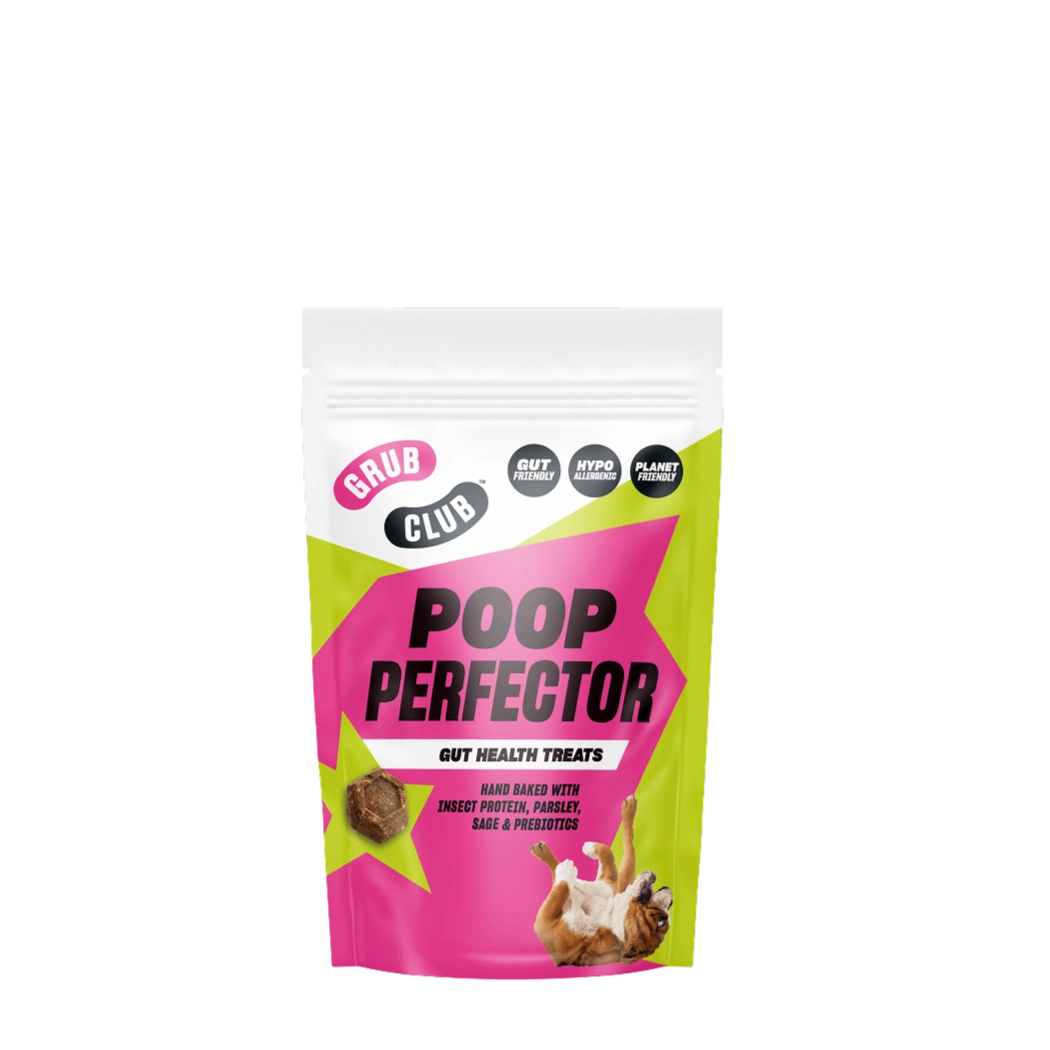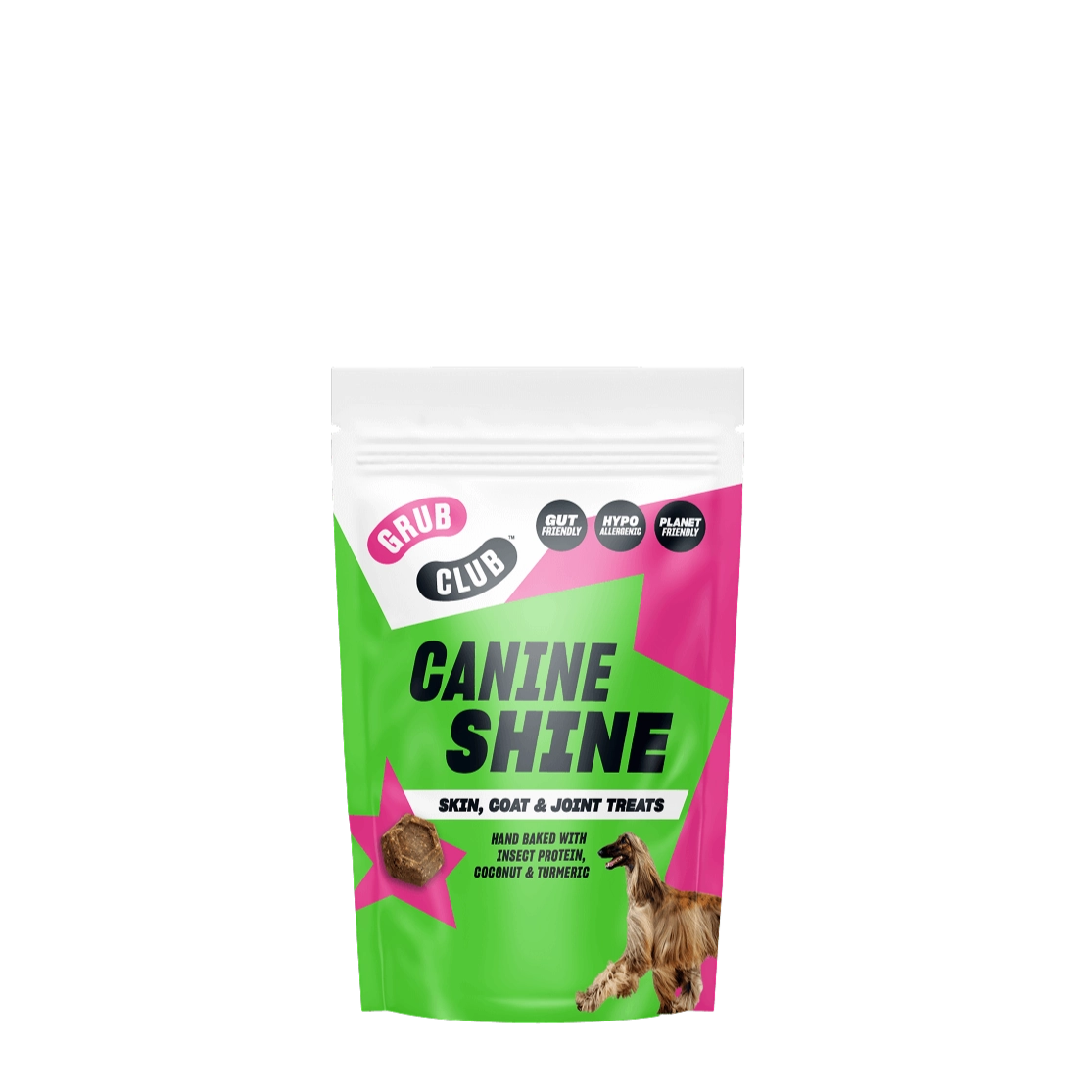Do you feel as though you are constantly scooping up after your canine friend? We hear you. What might seem excessive for one dog could be perfectly normal for another. Let's explore the factors that influence your dog's bowel habits and help you determine if your dog's poop schedule is a cause for concern.
Understanding Normal Bowel Habits in Dogs
-
Age: One crucial factor that influences the frequency of a dog’s bowel movements is their age. Puppies tend to poop far more frequently than adult dogs, with some requiring up to 5-6 bowel movements per day. There’s a reason we say it is like having a baby! As dogs age, their digestive system matures, and their poop frequency usually decreases.
-
Diet Quality and Fibre: The quality of your dog’s diet plays a significant role in their bowel habits. A well-balanced diet with the right amount of fibre is essential for regular and healthy pooping. Low-quality or high-fibre diets can lead to irregularities.
-
Exercise and Hydration: Dogs that receive regular exercise tend to have better digestion. Proper hydration is also key to maintaining regular bowel movements as dehydration can lead to constipation or hard stools.
-
Environmental Factors: Changes in a dog’s environment, such as moving to a new home or experiencing stress and anxiety, can affect their bowel habits. Dogs may poop more or less frequently when faced with new surroundings or emotional stressors.

When Should You Be Concerned About Your Dog’s Poop?
While some variation in your dog’s poop habits is normal, there are instances when you should be concerned. Signs of unhealthy dog poop include:
- Diarrhoea: Loose, watery, or runny stools.
- Constipation: Infrequent and hard-to-pass stools.
- Blood or Mucus: Any presence of blood or mucus in your dog’s stool is cause for concern and should be addressed promptly and checked by your Vet.
Common Causes of Blood or Mucus in Dog’s Poop
-
Diet: A sudden change in diet, food intolerances or food allergies can lead to digestive upset, including bloody or mucus-laden stools. Seek advice from your vet and consider gradually transitioning your dog to a new hypoallergenic food to help combat this.
-
Infections or Parasites: Internal infections, like parasites or bacterial infections, can result in abnormal poop. Regular vet check-ups and deworming can help to prevent these issues.
-
Gastrointestinal Conditions: More severe conditions like colitis or inflammatory bowel disease can also cause blood and mucus in your dog’s stool. These conditions will require veterinary diagnosis and treatment.

How to Make Your Dog’s Poop More Solid
If you’ve noticed that your dog’s poop is consistently too loose, you can take some of these steps to help firm it up:
-
Evaluate Their Diet: Ensure that you’re feeding your dog a well-balanced diet appropriate for their age, size, and breed. You can consult with your vet if you want to determine if a diet change is necessary.
-
Probiotics, Prebiotics and Digestive Supplements: Probiotics and prebiotics can help improve gut health and regulate bowel movements. These can be purchased from pet shops, they can be prescribed by your vet and they can also be found as lovely goody extras in some complete dog foods, just like ours here at Grub Club!
-
Food Allergies and Sensitivities: Identify any potential food allergies or sensitivities and adjust your dog’s diet accordingly. Elimination diets can be helpful in determining problematic ingredients.

We hope this helpful pet welfare guide will get your dog’s poop back onto the right track but if you’re highly concerned about your dog’s poop or notice persistent abnormalities, please don’t hesitate to consult your veterinarian for guidance and treatment options. Your furry friend’s well-being is of the utmost importance.



